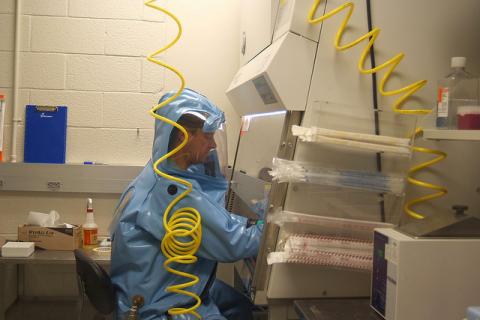Sex, clinical trials and medicines regulation: part I

Attention to sex and gender in biomedical, health and clinical research is an important quality and safety issue. Medicinal products are safer and more effective for everyone when clinical research includes diverse population groups. Historically, women’s health issues have focused on reproductive health, followed by gender issues such as behaviour, socio-economic factors, culture, lifestyles and influence biological development and health.
More scientific knowledge is becoming available that some treatments work differently in men and women, but the proportion of treatments for which men and women respond differently is yet unknown. As we gain a better understanding of the strong correlation between sex and the incidence, prevalence, symptoms, age at onset and sever¬ity of disease as well as the reaction to medicines, it becomes imperative to act upon this knowledge and better target medicines treatment to respective patient population groups (Kim et al 2010).
It has also become apparent that many physiological and pathological functions are influenced by sex-based differences in biology. Recent research on cardiovascular disease, osteoporosis, and depression has identified significant differences among women and men with respect to the distribution of certain diseases. Women and men have different sex- and gender-related risks for developing certain conditions and also may respond to treatment differently. For example, biological differences between males and females can affect how a medicine works in the body. Additionally, patterns of gene expression differ between males and females. This has important implications for health and healthcare.
Influenza vaccination is one example where biological differences between males and females play a role. One major biological difference between males and females that creates different outcomes of the infection and development of influenza is the response of the individual immune system. Sex differences in immune function are well established; for example, several genes that are responsible for immunological proteins are on the X chromosomes, and studies have shown that inflammatory immune responses are generally higher in females than in males (WHO 2010).
Biologically, females and males differ in their immunological responses to seasonal influenza virus vaccines. Women, whether adult or as older persons, have higher antibody responses to influenza vaccinations – the antibody response of a woman to half a dose of influenza vaccine is equivalent to the antibody response of a man to the full dose (Klein et al 2010).
Women also report a worse reaction to vaccinations than men do. Several studies have showed that women report more local reaction such as swelling, tenderness, inflammation, and injection site pain. This may be due to increased pain sensitivity in women or it may be due to the fact that women are more likely to report adverse side effects than men; however, it may also be that the adverse reactions may be caused by the dose being too high, as vaccines with half the dose have proven to be as effective in women (Klein and Pekosz 2014). The WHO recommends that sex and gender should be considered when evaluating the efficacy of antiviral treatments (WHO 2010).
While female participation in clinical trials has improved in recent years, the assumption still exists that women do not differ from men except where their reproductive organs are concerned – using this logic and the assumption that being male is the norm, data obtained from clinical research involving men is simply extrapolated to women (Health Canada 2013). Low participation of women in clinical trials also results in a lack of awareness among doctors and health care professionals about the importance of sex-specific differences across the lifespan, as well as creating a situation where doctors cannot provide care for females that is evidence-based (Kim et al 2010).
References
Kim AM, Tingen CM, Woodruff TK. (2010) Sex bias in trials and treatment must end. Nature, 465(7299): 688–689.
Klein, S.L., Jedlicka, A., and Pekosz, A. (2010)’ The Xs and Y of immune responses to viral vaccines’, The Lancet Infectious Diseases, 10(5), 338-349.
Klein, S.L., and Pekosz, A. (2014) ‘Sex-based Biology and the Rational Design of Influenza Vaccination Strategies’, Journal of Infectious Diseases, 209, 114-119.
World Health Organisation (2010) Sex, gender and influenza, Geneva: World Health Organisation.
